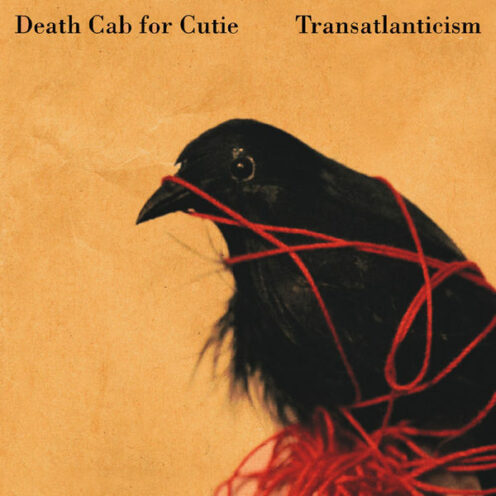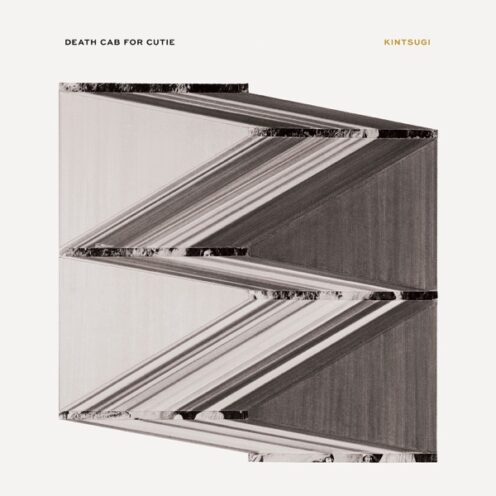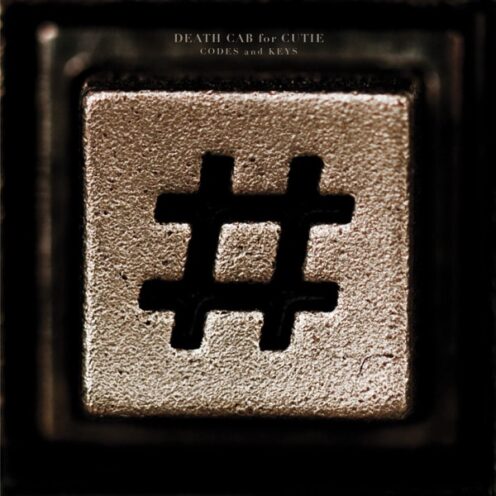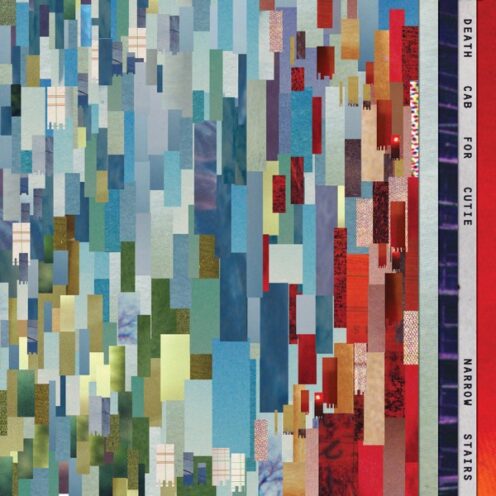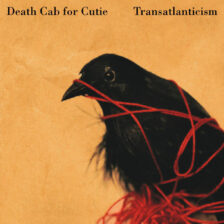Transatlanticism is my favorite album of all time. Death Cab For Cutie’s fourth album, released fifteen years ago today, is the band’s second concept album. Transatlanticism centers itself around long-distance love, with both its strengths and downfalls. Ben Gibbard, the band’s soft-sung lead vocalist, lyricist, and guitarist, penned the term “transatlanticism” to express the unfathomable emotional space between two young lovers. The distance Gibbard discusses feels impenetrable. Transatlanticism sees Death Cab For Cutie experimenting with soft-loud dynamics (“Transatlanticism”, “We Looked Like Giants”), perfecting the gorgeous quiet track (“Lightness”, “A Lack of Color”), and witnesses them pushing themselves to go all-out and produce the flawless pop song (“The Sound Of Settling”). Completing all of this is the efforts of guitarist, co-writer and producer Chris Walla. Walla’s lo-fi production is perfect for Transatlanticism. Fifteen years later, and Transatlanticism still sounds incredibly rich and indulgent, yet also warm and intimate.
Review: Death Cab For Cutie – Kintsugi
The word ‘Kintsugi’ means a “style of art where they take fractured, broken ceramics and put them back together with very obvious, real gold. It’s making the repair of an object a visual part of its history.”
It has understandably been a hard four years for Death Cab For Cutie since Codes & Keys came out. First, Ben Gibbard’s divorce makes for a departure from the newfound love that existed in songs like “Stay Young, Go Dancing” on Codes. Second, guitarist and founding member – and perhaps most importantly long-time producer – Chris Walla decided to leave the band, with this being his final album. The result of these situations is Kintsugi.
Entirely true to its name, the album expresses the void felt by Gibbard – the need to fix (or fill) something that is broken, to find something that is missing. The opening “No Room In Frame” begins with music that feels desolate and incomplete before Gibbard solemnly admits, “I don’t know where to begin.” The eerie music carries on, as the choppy guitars and drums add weight to the heartbreak of the line “And I guess it’s not a failure we could help / And we’ll both go on to get lonely with someone else.” The repetition of “with someone else” adds another blow to the gut, really letting the sheer desolation of the song sink in. One track in and we already have the fractured heartbreak that resonates throughout Kintsugi, just as the name implies.
Read More “Death Cab For Cutie – Kintsugi”Review: Death Cab For Cutie – Codes and Keys
It has been just over three years since the release Death Cab For Cutie’s highly experimental Narrow Stairs. Differing from the groundbreaking Transatlanticism and haunting Plans, Narrow Stairs had a more raw feel to it – more electric guitars, distortion, and heavier instrumentation. That is not to say that it did not feature the intricate nature of Death Cab’s previous efforts, as tracks such as “Talking Bird” and “The Ice Is Getting Thinner” were poignant and mysterious cuts. In this way, the experimentation of Narrow Stairs made it a record that took time to resonate and fully appreciate – it was a record that got better with time.
However, while recording the highly anticipated follow-up record, the perfectly titled Codes and Keys, Death Cab explained that the record would be a departure from Narrow Stairs, equipped with more keyboards and less guitars. Sure enough, that’s exactly the case. What results from this different approach is a record of true beauty, encompassing every aspect of Death Cab For Cutie’s discography into one definitive record. It’s the haunting keyboards, meek vocals, and eerie fuzzy distortion echoed throughout Codes and Keysthat generate a record that pushes the limits of their sound to the peak.
Read More “Death Cab For Cutie – Codes and Keys”Review: Death Cab for Cutie – Narrow Stairs
Death Cab For Cutie has a new album. It’s called Narrow Stairs, and if you haven’t read the articles, then you may not know that it’s “bloody and loose” and more “hard rock” than any of their previous work. Or maybe you have no clue that guitarist Chris Walla is back as producer, and from there, the album was recorded on analog tape to minimize overdubs. These are the token details we’ve been given.
2005’s Plans, the band’s first major label release, is high-profile studio work – sparkling and calculated. Being the epitome of commercially viable indie rock and a band that’s proved themselves capable of making literate music in the face of popularity, the release of Narrow Stairs isn’t about doubt; it’s about questions. Like, how will the band live up to darling Transatlanticism? Or will Narrow Stairs come close to the ability of Plan’s platinum success? Will Ben Gibbard top his past lyric and vocal work? If the analog Narrow Stairsprocess really was “bloody and loose”, will we even notice, or was it more for their own well-being? Death Cab’s art pop as hard rock? Wait, really?
Read More “Death Cab for Cutie – Narrow Stairs”